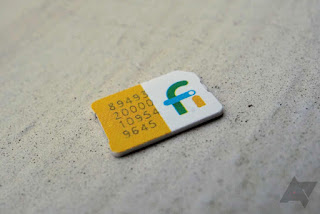Sometimes, the speed of our computers with Microsoft
Windows can be slow.
Windows can be slow.
This appears as the system taking more time to respond to a user's actions like opening files, surfing the Internet, playing games and other tasks. However, there are things you can do to speed up your computer
The following is a list of ways you can improve your
computer's performance.
computer's performance.
1. Cleaning Your Desktop Or Laptop
Is your Windows Desktop dotted with files? Have you noticed that your computer has been running slower and slower? Do you see the hard drive light often flashing while you wait for the computer to respond to an action?
There are steps you can take to fix it. Read this
article.
article.
2. Scan Your Windows System for Errors.
An operating system is a collection of files that perform different functions. It is possible, over time, that one or more of these system files has changed or become infected. If this happens, the speed of
your system may decrease.
your system may decrease.
By using a utility called "System File Checking", it
will inspect these files and correct any problem it finds.
will inspect these files and correct any problem it finds.
3. Make Sure Your Hardware Has a Sufficient Space.
Above and beyond everything you can do with software to optimize the function of your computer, making sure you have the proper hardware to support Windows is critical.
4. Uninstall Unused Programs
Over time, you may have accumulated programs on
your computer that you do not make use off.
your computer that you do not make use off.
When a program is installed, it creates connections between the program and the operating system.
Even if you don't use these programs at all they can slow down your system. If you have the original program's installation disk or file removing programs will free up space on your computer and may also speed up your system's performance.
5. Don't Automatically Start Programs.
Programs use operating memory (RAM, also called
system resources). Unless you always use these programs, you can keep them from loading at Windows start-up and speed both the booting of your computer and its performance.
system resources). Unless you always use these programs, you can keep them from loading at Windows start-up and speed both the booting of your computer and its performance.
6. Scan for Viruses, Spyware and Adware.
Viruses are nasty little programs that cause both major and minor problems for users. Spyware and Adware are programs created by software companies to find out more information about customers, so they can better market products to them.
Usually these programs are not created for malicious purposes. Spyware and Adware can load into computer memory and slow it down. Regular scanning and removal of Viruses, Spyware and Adware is a great way to improve computer performance.
7. Back Up And Reinstall The Operating System And Programs.
If you have done all the steps listed and your computer does not become more responsive, you might consider backing up and reinstalling the operating system and programs.
you backup all your data and user settings, wipe your hard drive clean and re-install the operating system with your original disks. Next, install all your favorite programs and restore all your data and user settings.
The nice thing about doing this is that you essentially have a new computer, free of years worth of software and registry changes, additions and errors that can turn a fast bite of a Windows computer into a slow turtle.
The bad thing about this choice is that it takes time and planning to do it correctly. If your PC is 3 to 4 years old and continues to run slower than it did when you purchased it, this might be the only action that will make a significant difference.
So what will you do? you know what..just change it.














No comments:
Post a Comment